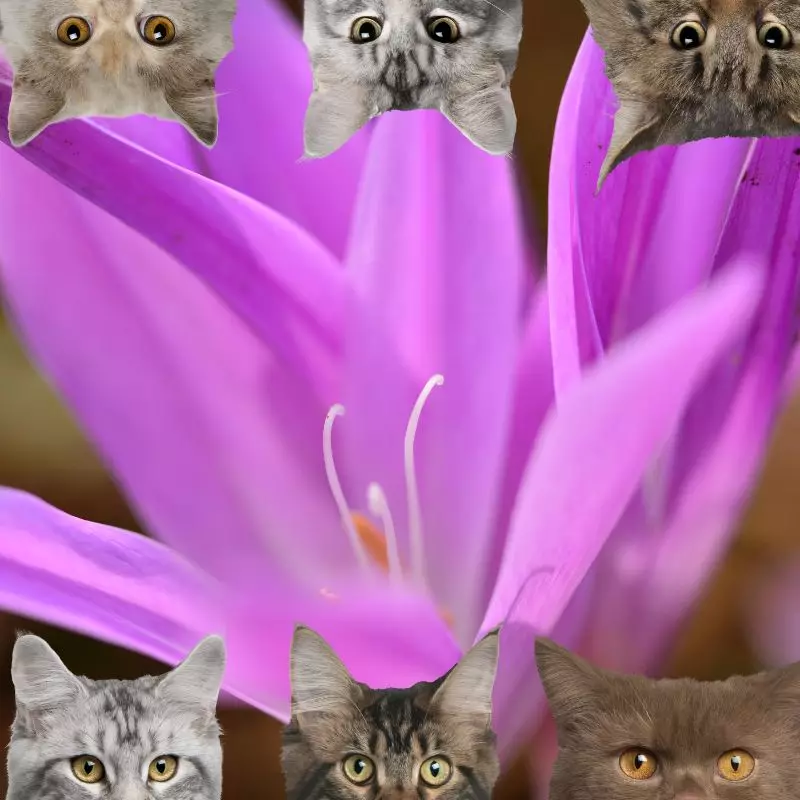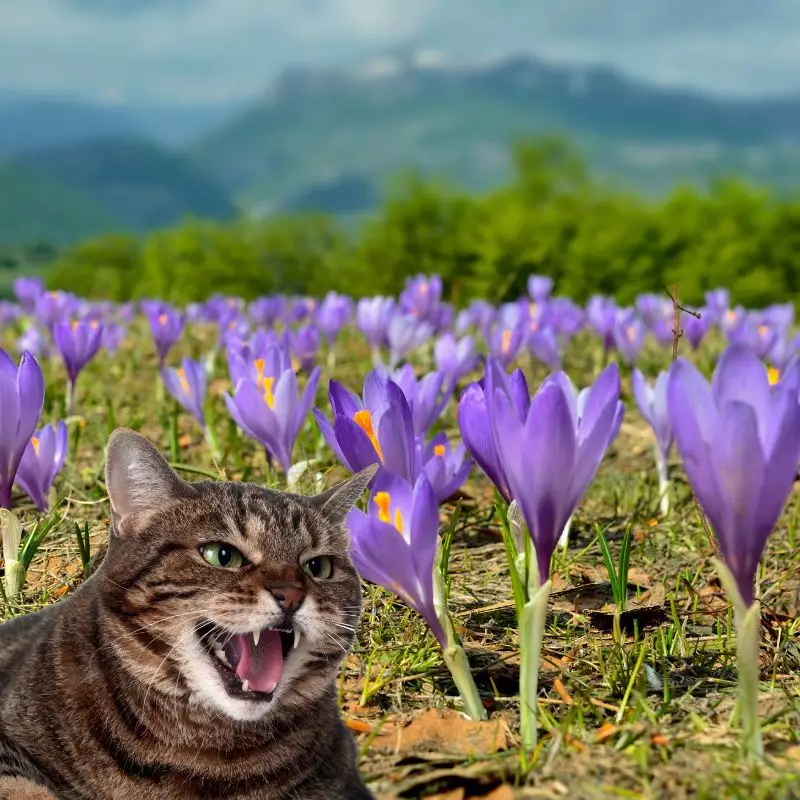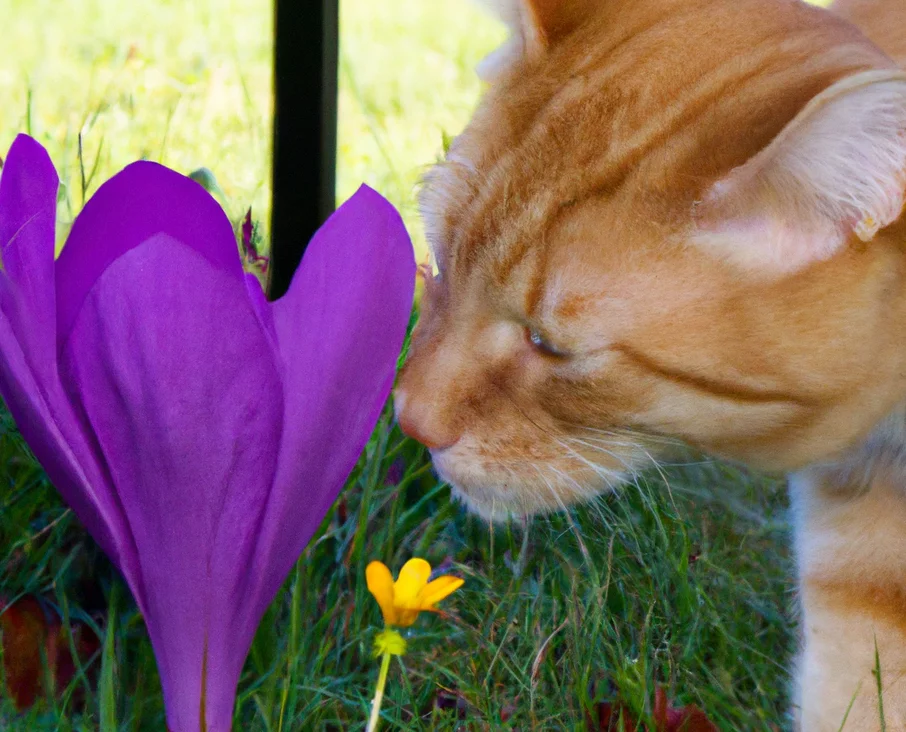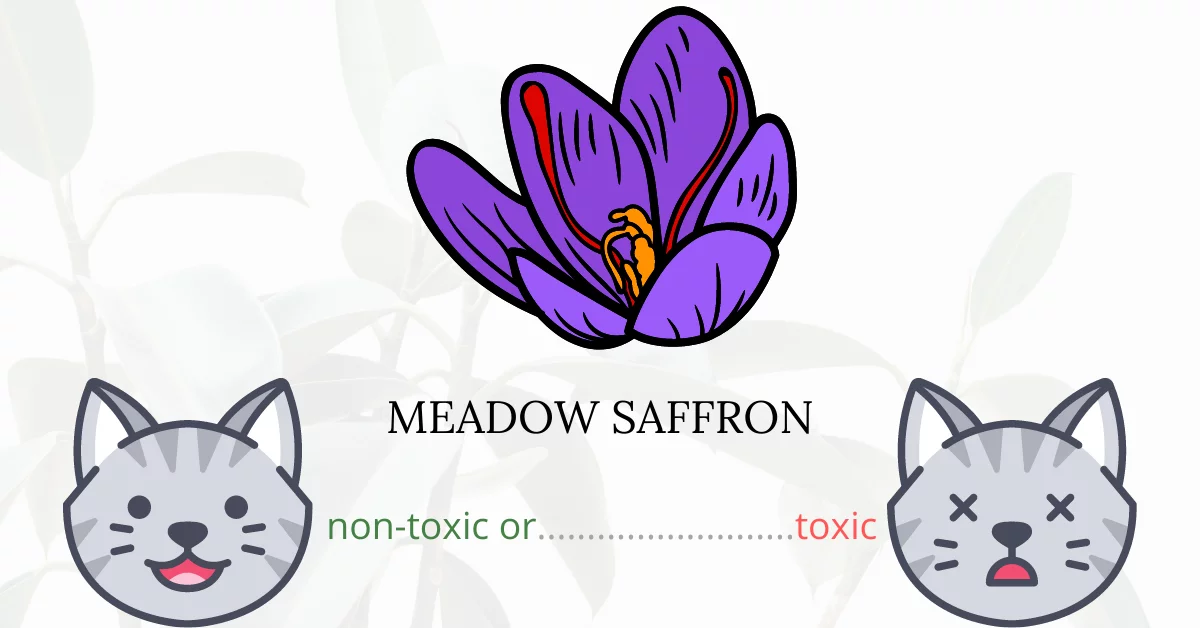Yes, Meadow Saffron is toxic to cats. This plant contains harmful compounds like colchicine and other alkaloids, which are especially dangerous for felines. The highest concentrations of these toxins are present in the leaves and fruit of Meadow Saffron. However, all parts of the plant should be regarded as hazardous. The ingestion of colchicine can cause red blood cells in the body to clot, potentially leading to blockages that hinder blood flow to essential organs. This obstruction can result in total organ failure, which can be lethal.
This article is written in collaboration with a team of experienced DVMs (doctors of veterinary medicine). With their expert input, we provide accurate and up-to-date information on the potential risks of various plants, specifically Meadow Saffron, and its effects on cats. Our research is backed by high-authority sources, including ASPCA and PetMD, ensuring you receive comprehensive and reliable details on every plant discussed.
Clinical Signs of Meadow Saffron Poisoning in Cats

If you suspect your cat has come into contact with, smelled, or ingested Meadow Saffron, it’s crucial to recognize the signs and seek veterinary help immediately. Here’s a breakdown of the clinical symptoms your cat may display and the reasons behind them:
- Oral Irritation: If a cat chews or bites the plant, the toxins present can cause immediate irritation to the mouth and throat. This irritation is a direct result of the plant’s alkaloids, which can produce a burning sensation or discomfort.
- Vomiting with Blood: The ingestion of Meadow Saffron’s toxins can severely irritate the stomach lining. As the body tries to expel the poisonous substance, it might lead to vomiting. The presence of blood indicates severe irritation or internal damage.
- Diarrhea: Just as the toxins irritate the stomach, they can also disrupt the normal functioning of the intestines, leading to diarrhea. This is the body’s way of trying to rid itself of the harmful compounds.
- Shock: Due to the rapid effect of the toxins on the cat’s system, especially the cardiovascular system, a cat might go into shock. This is a life-threatening condition where the blood pressure drops significantly, and the body is unable to deliver enough oxygen to vital organs.
- Multi-organ Damage: The toxins in Meadow Saffron, particularly colchicine, can lead to blockages in blood flow, depriving vital organs of essential nutrients and oxygen. Over time, this lack of blood flow can cause organ damage or complete failure.
- Bone Marrow Suppression: Colchicine affects rapidly dividing cells, including those in the bone marrow. This can lead to a decrease in the production of new blood cells, making the cat more susceptible to infections and decreasing its ability to carry oxygen or clot blood.
If you notice any of these symptoms in your cat, it’s imperative to contact a veterinarian without delay.
First Aid and Treatment of Meadow Saffron Poisoning in Cats

The sooner meadow saffron poisoning is treated, the better the cat’s chances of recovery from the incident are. If the cat is not attended to right away, it may result in death because of the colchicine’s poisonous reaction.
Toxins may be removed from your cat’s system by the veterinarian inducing vomiting. The vet may also use activated charcoal to absorb any residual colchicine in your cat’s system. If days have gone by since your cat consumed meadow saffron, the vet may opt to perform gastric lavage to eliminate the poisons from his stomach.
Other supportive treatment may also be provided such as intravenous fluid therapy and oxygen support. This may depend on the symptoms that your cat is experiencing and the severity of his condition.
Recovery from Meadow Saffron Poisoning in Cats

Though fatalities from meadow saffron poisoning have been reported, the result for a cat poisoned by meadow saffron is entirely dependent on how much of the plant was consumed and how promptly treatment was administered. If organ damage has occurred, it is almost certainly irreversible. This could necessitate the cat to receive lifetime medication or procedures to improve the function of the afflicted organs.
Prevention of Meadow Saffron Poisoning in Cats
As a cat owner, avoid growing meadow saffron and other toxic plants in your garden. Cats that live in an area where meadow saffron can thrive are at risk. To protect your cats from meadow saffron and other harmful plants, it may be advisable to keep them indoors.
If you love plants but have cats at home, check out these lists:





